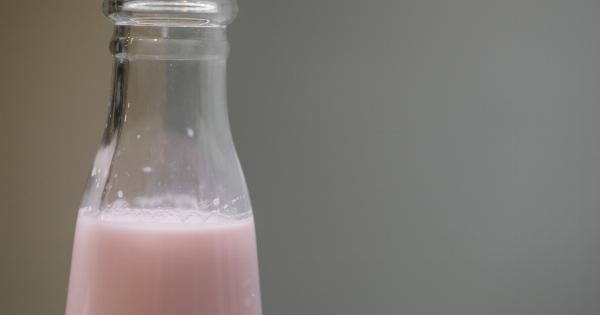Low-calorie beverages are the perfect alternative for people who are on a quest to achieve a healthy lifestyle. They are drinks that have fewer calories than their regular counterparts, but still provide the same amount of taste.
The drinks have become popular among individuals who want to maintain a healthy weight while still enjoying their favorite beverages. It is worth noting that low-calorie drinks are not just limited to water, but there are numerous other options that you can choose from. Let’s delve deeper into the topic of low-calorie beverages.
What are low-calorie beverages?
Low-calorie beverages are drinks that are specially formulated to have fewer calories than their regular counterparts. The drinks are a perfect alternative for individuals who are looking to maintain a healthy weight and stay healthy.
Low-calorie drinks are popular because they can provide the same amount of taste as their high-calorie counterparts without the excess calories.
Types of low-calorie beverages
There are numerous low-calorie beverages that you can choose from depending on your preferences. The following are some popular options:.
- Water: Water is the perfect low-calorie drink because it contains zero calories, and it’s essential for keeping your body hydrated.
- Low-fat milk: Low-fat milk contains fewer calories than full-fat milk and is an excellent source of calcium.
- Green tea: Green tea is a popular drink that is known for its numerous health benefits. It contains fewer calories than regular tea and coffee.
- Soda water: Soda water is another low-calorie drink that is perfect for individuals who crave the fizziness of soda but want to avoid the excess calories.
- Flavored water: Flavored water is a perfect alternative for individuals who find plain water boring. The drink contains fewer calories than soda and is an excellent source of hydration.
- Fruit juice: Fruit juice is a popular low-calorie drink that is perfect for individuals who have a sweet tooth. However, it is essential to keep in mind that some fruit juices contain significant amounts of sugar.
Benefits of low-calorie beverages
The following are some of the benefits of low-calorie beverages:.
- Weight management: One of the primary benefits of low-calorie beverages is that they can help individuals maintain a healthy weight by reducing the number of calories they consume each day.
- Improved hydration: Low-calorie drinks are an excellent source of hydration, and they can help individuals stay hydrated throughout the day.
- Reduced sugar intake: Many low-calorie drinks contain less sugar than regular soft drinks, making them an excellent alternative for individuals looking to reduce their sugar intake.
- Improved digestive health: Some low-calorie drinks contain probiotics that can help improve digestive health and reduce the risk of gastrointestinal problems.
Possible risks of low-calorie beverages
Although low-calorie beverages have numerous benefits, it is essential to keep in mind that they can also have some potential risks. The following are some of the risks associated with low-calorie drinks:.
- Artificial sweeteners: Some low-calorie drinks contain artificial sweeteners that have been linked to numerous health problems, including cancer.
- Nutrient deficiencies: Drinking low-calorie beverages instead of nutrient-rich beverages can lead to nutrient deficiencies, which can have adverse health effects.
- Dehydration: Although low-calorie drinks are a great source of hydration, it is essential to consume them in moderation. Overconsumption can lead to dehydration, especially if you do not drink enough water.
Conclusion
Low-calorie beverages are a perfect alternative for individuals who are looking to maintain a healthy weight or want to lead a healthy lifestyle.
The drinks provide numerous benefits, including reduced sugar intake, improved weight management, and improved digestion. However, it is essential to keep in mind that they can also have potential risks, including nutrient deficiencies, dehydration, and the presence of artificial sweeteners.
Therefore, it is crucial to consume low-calorie drinks in moderation and under the guidance of a nutritionist or healthcare professional.






























